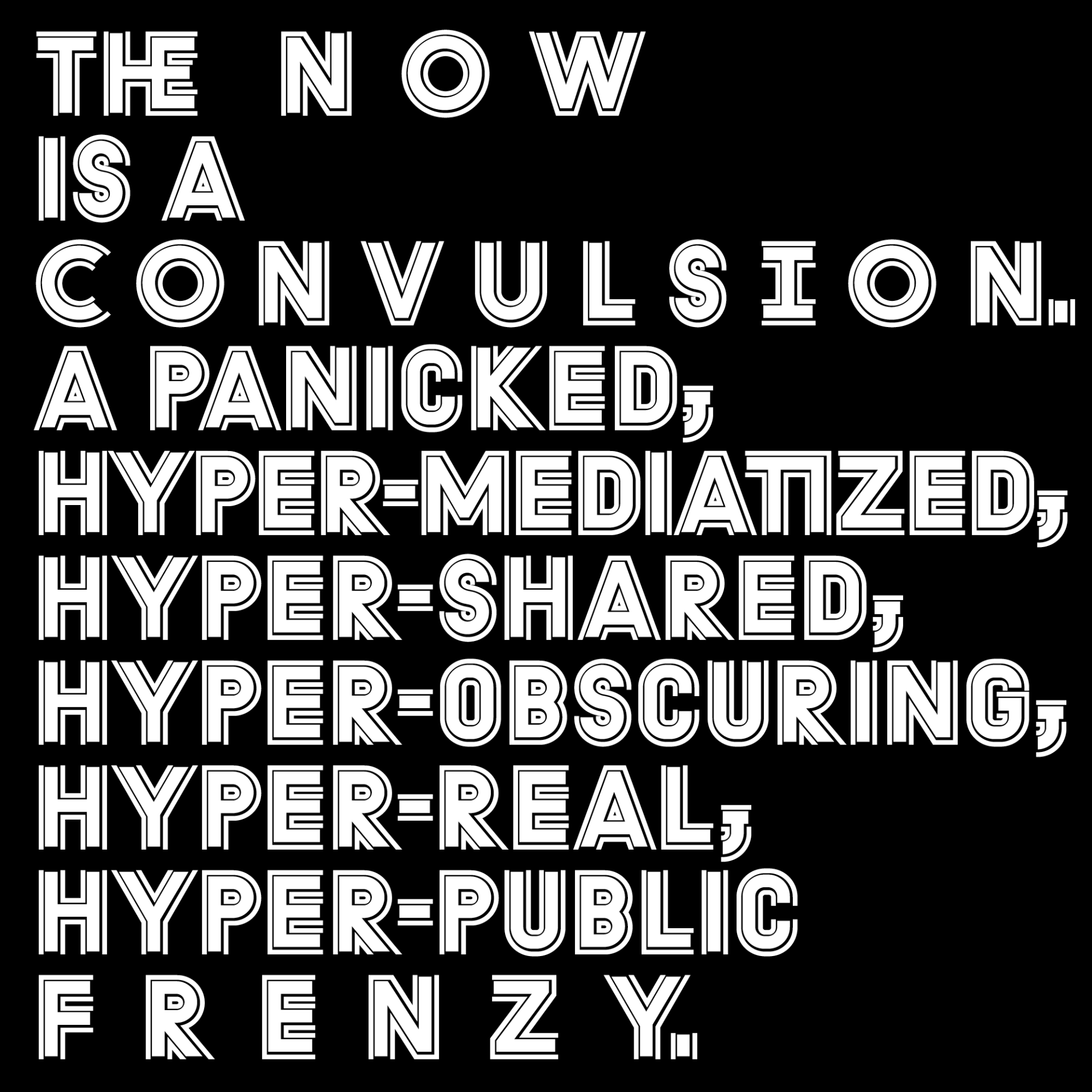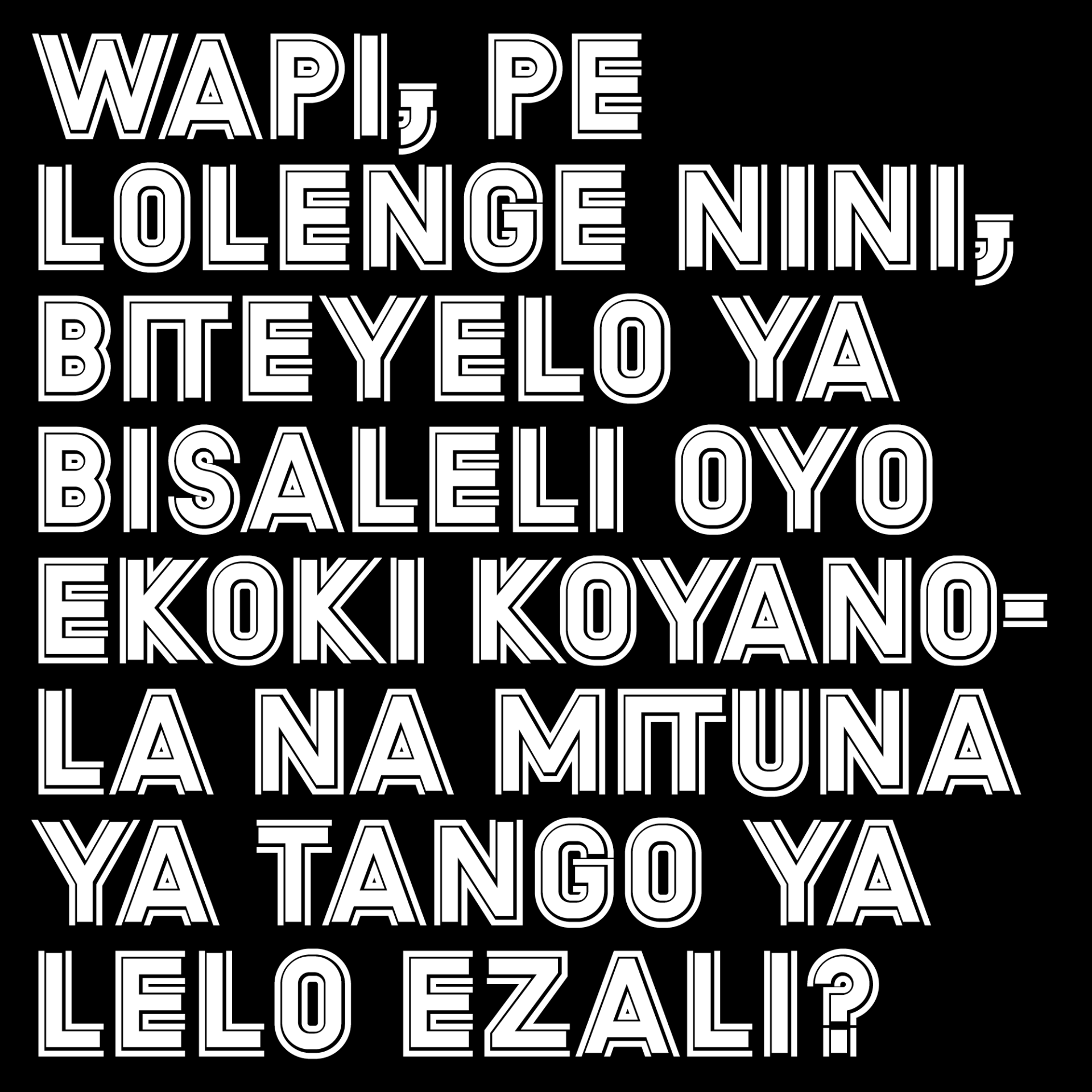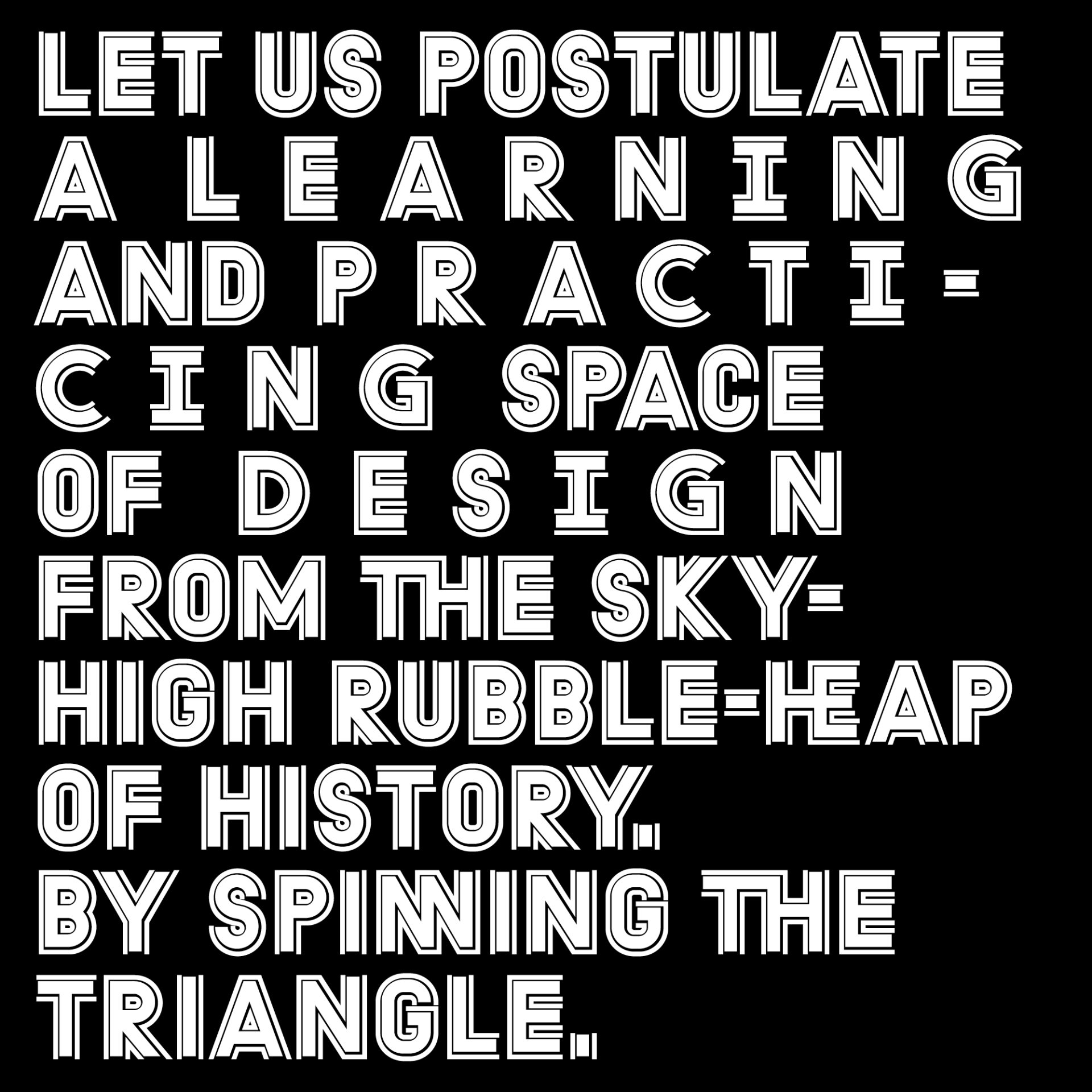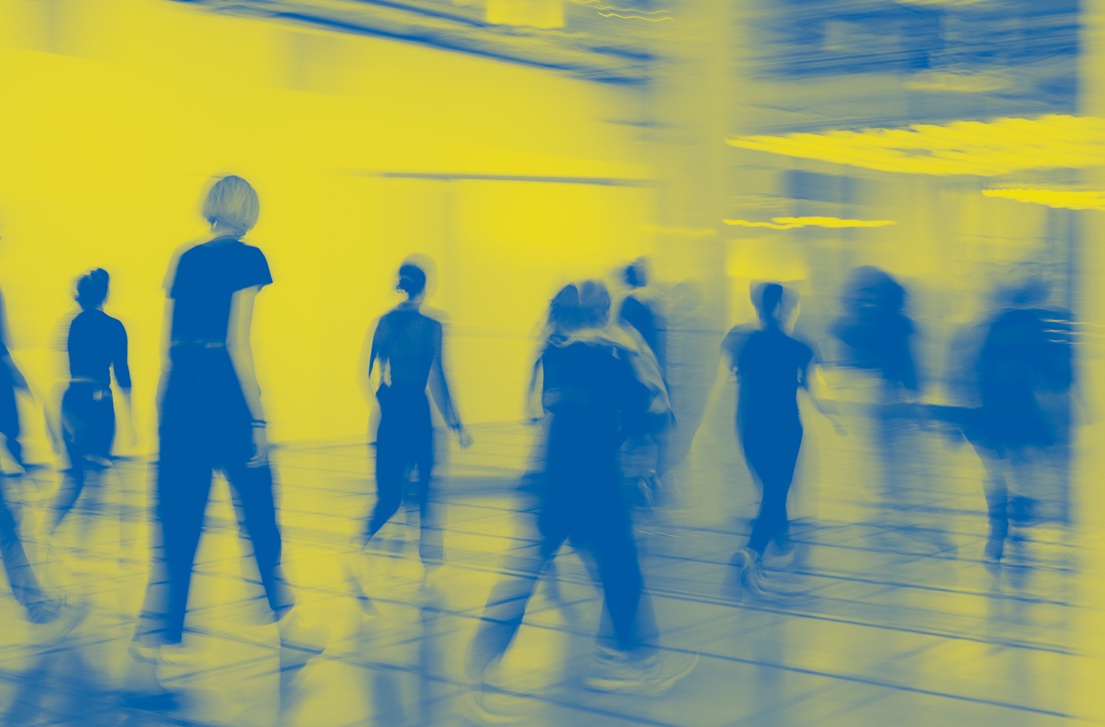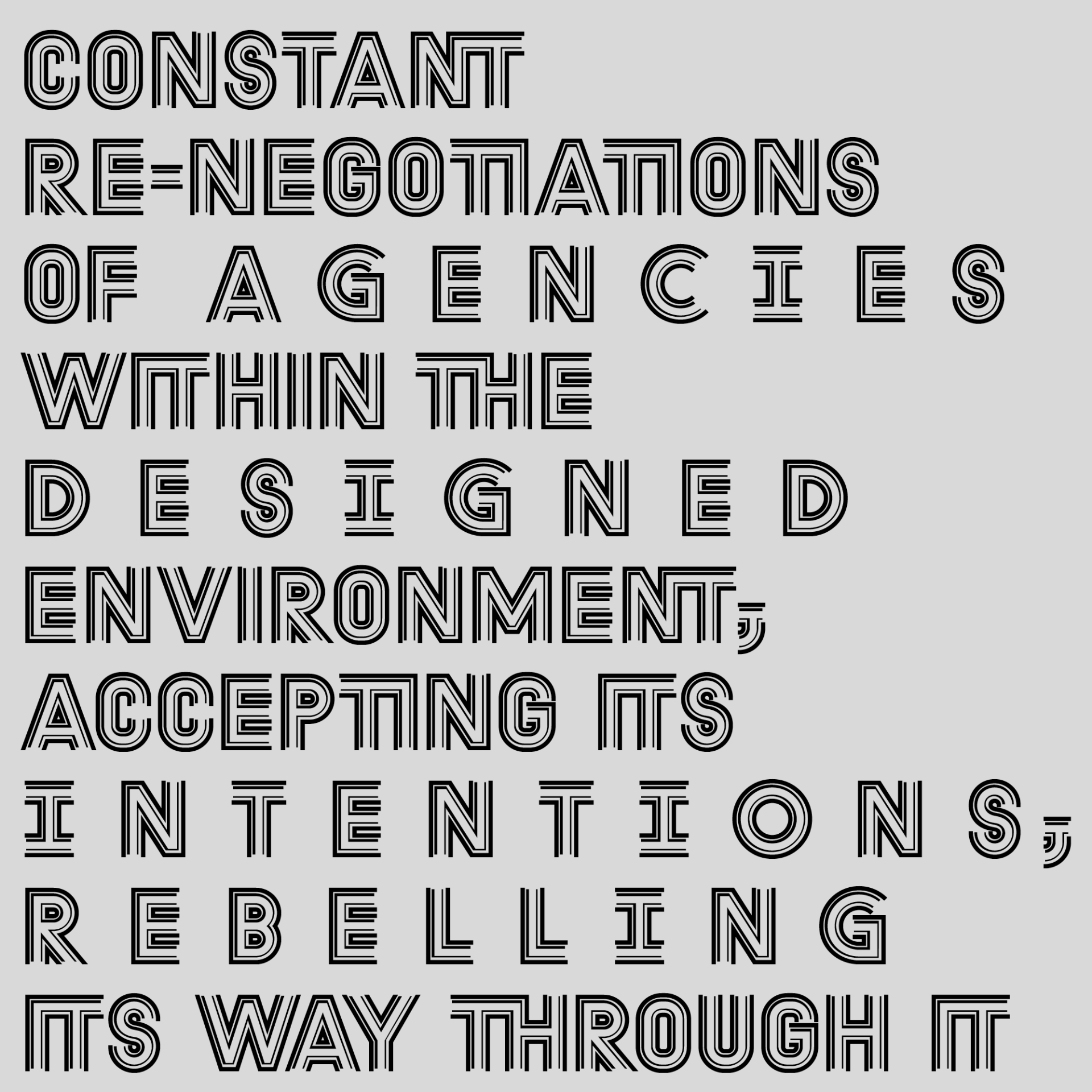Spinning triangles:
Ignition of a School of Design
On the occassion of the 100th anniversary of the bauhaus, SAVVY Contemporary seeks to challenge and act against the inherent, neocolonial power structures in design practices, theory and teaching with its project Spinning Triangles. It takes up the founding moment of the Bauhaus one hundred years ago and starts from its reality as a school of design to reverse and reshape it. We recognize the Bauhaus not only as a solution, but also as a problem, and will propose a school of design that may well become an “un-school,” and will emerge through a process between Dessau, Kinshasa, Berlin and Hong Kong.
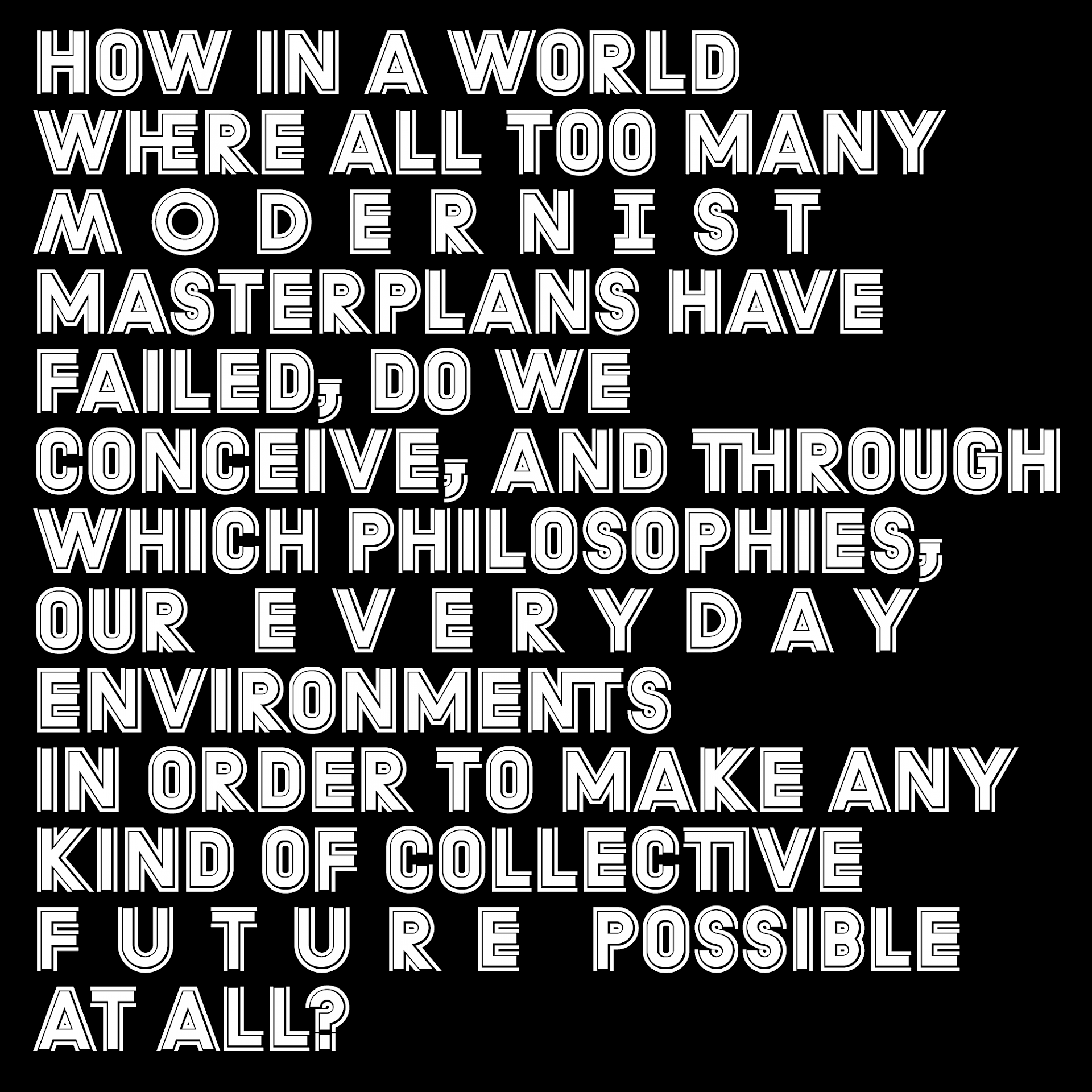
Dessau 04.01.–22.01.2019
Interventions and workshops
Berlin 24.01.–27.01.2019
Intervention at the opening festival of “100 years of bauhaus”
Kinshasa 06.04.–14.04.2019
Symposium and workshops
Berlin 22.07.–18.08.2019
School of design
Hong Kong 08.10.–16.10.2019
Symposium and workshop
With Sinzo Aanza, Maria Isabel Alves, Akinbode Akinbiyi, Aouefa Amoussouvi, Arjun Appadurai, Jose Bamenikio, Banka (Jonathan Bongi, Jean Kemba, Elie Mbansing, Malaya Rita, Jean-Jacques Tankwey), Bildhauerwerkstatt des BBK, Chabela, Christian Benimana, Kate Danyu Chen, Cosmin Costinas, DAAR (Decolonizing Architecture Art Residency), Decolonising Design (Luiza Prado, Pedro Oliveira), Cheick Diallo, Eddy Ekete, Caroline Ektander, Olani Ewunnet, Lamin Fofana, *foundationClass (Ulf Aminde and Miriam Schicker), Marc Herbst, Iviart Izamba, Henri Kalama, Saskia Köbschall, Uta Koloczek Keramik, Koyo Kouoh, KUNCI School of Improper Education, Kunst im Kontext (Santiago Calderon, Kristina Leko, Alessandra Plaza a.o.), Van Bo Le-Mentzel, Lisanga Bankoko (Lema Diandandila, Mavita Kilola, Mbo Mbula, Lutadila Lukombo), Saki Mafundikwa, Dominique Malaquais, Malaysia Design Archive, Simon Malueki, Edna Martinez, Lambert Mousseka, Henrike Naumann, Oracle Ngoy, Cedrick Nzolo, Ahmet Öğüt, Colette Poupie Onoya, Eliana Otta, Tabita Rezaire, Henrique Roscoe, Sophie Rzepecky, Lorenzo Sandoval, Eda Sarman, Schwarzdruck (Marc Berger), Simon Soon, Juan Sossa, Tau Tavengwa, Ema Tavola, We Make It (Franziska Brandt and Moritz Grünke), Nada Tshibuabua, Ola Uduku, and many others
First and foremost, the Bauhaus was a school of design. It aimed to educate a new generation of designers, makers and thinkers that would face the challenges of their “now”. Spinning Triangles takes up this founding moment of 1919. Not in order to repeat it but to twist it: we will create a school of design that has what it takes to tackle the challenges of our “now”, and might, precisely by this, turn into an “Un-school”. This school will not be developed by the geopolitical west, but through the accelerated movement between deeply interwoven places – Dessau, Kinshasa, Berlin and Hong Kong.– and will confuse their prescribed roles as idea provider, raw material supplier and champion of production.
The ignition of this school will take place in Kinshasa – in the capital of a country without which our smartphone-modernity, creative economy and data collecting mania is unthinkable but which also bears the highest costs: the past twenty years alone have amassed six million corpses caused by the ruthless mining of minerals and its associated conflicts – official numbers that can be deemed as cautious estimations.
The longterm project starts in Dessau, where Van Bo Le-Mentzel will open a new Tinyhouse, the “Wohnmaschine”: a miniature clone of the workshop wing of the Dessau Bauhaus building. Behind the iconic facade hides a fifteen square meter apartment with an elaborate interior design and exhibition possibilities. We will not only inhabit these four walls, but also invite guests in order to negotiate space and property and question the complex heritage of modernity. Interventions by various protagonists will activate this mobile “world heritage site” and thus open it up to the public as an “academy of the fireside”. We will face the relations of coloniality and design as well as its various visibilities and invisibilities. Shortly after, results and experiences will move to Berlin on the occasion of the “100 years of bauhaus” opening festival, before the project is developed further in the Democratic Republic of Congo.
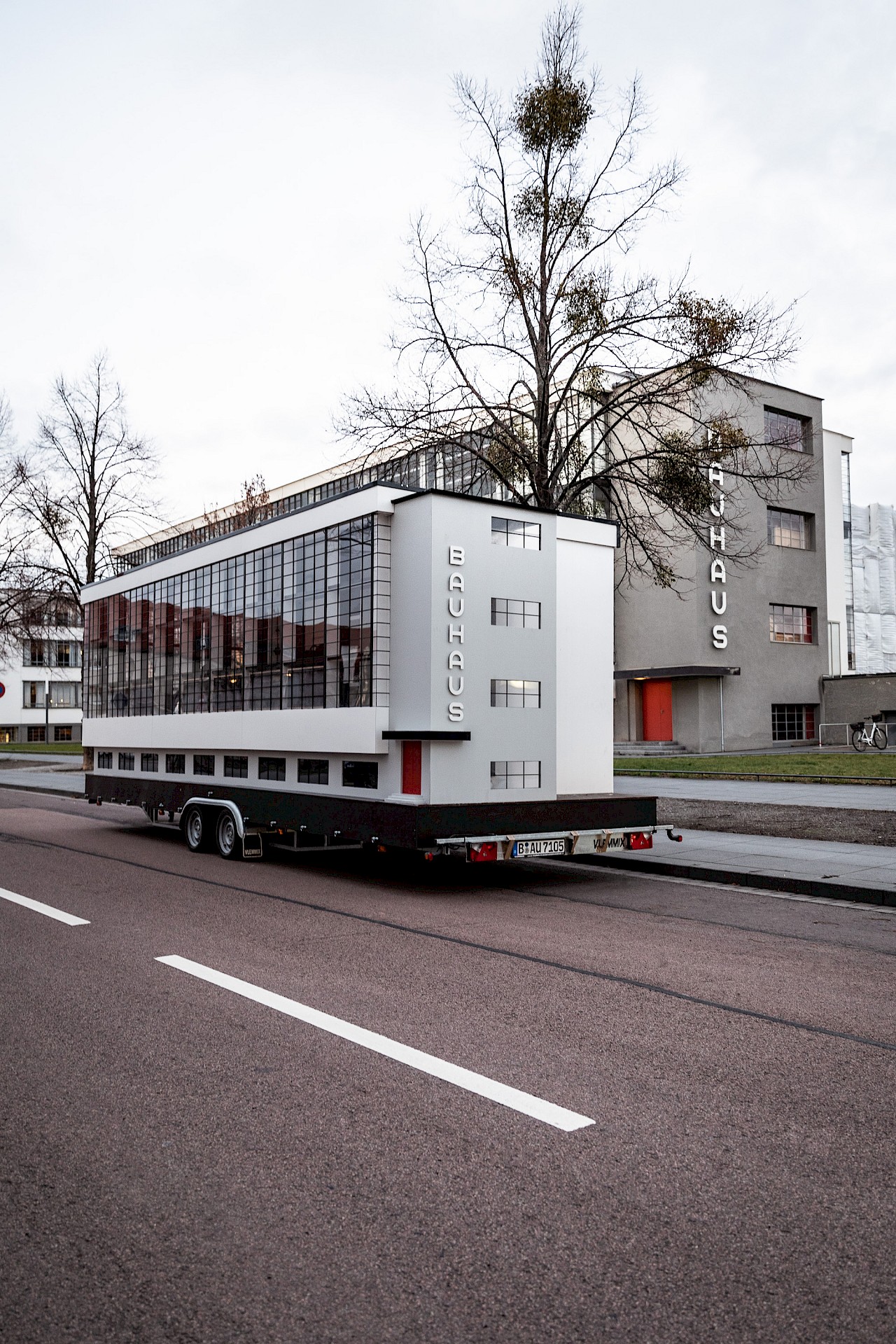
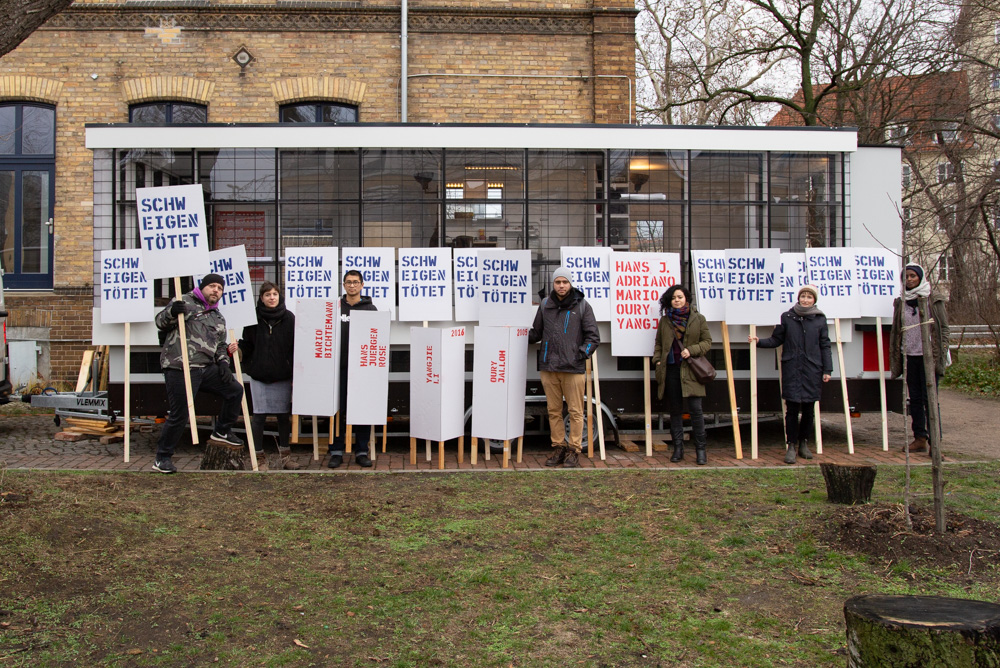
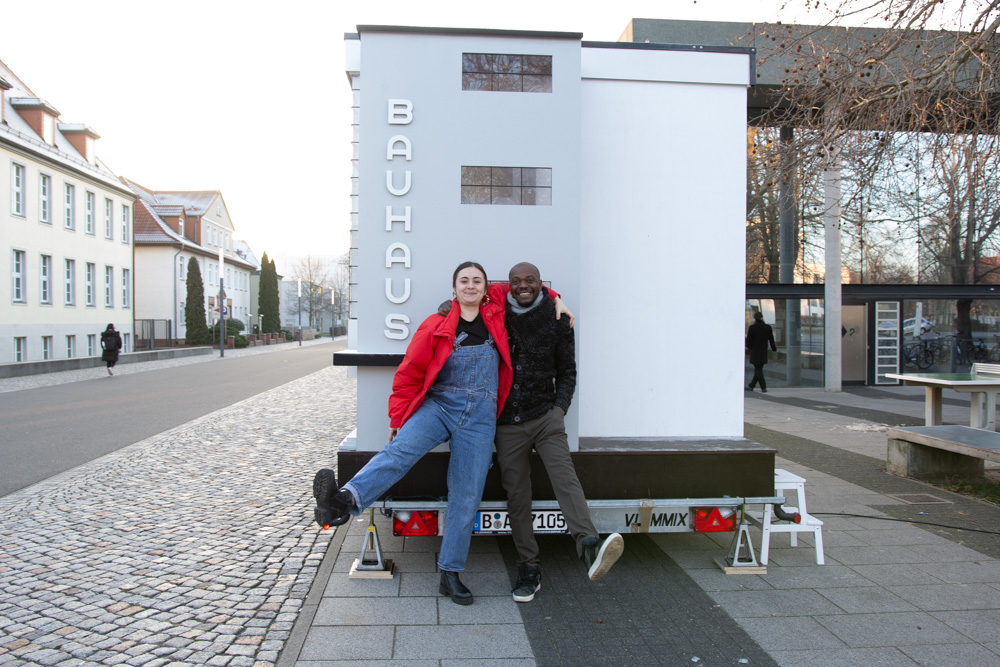
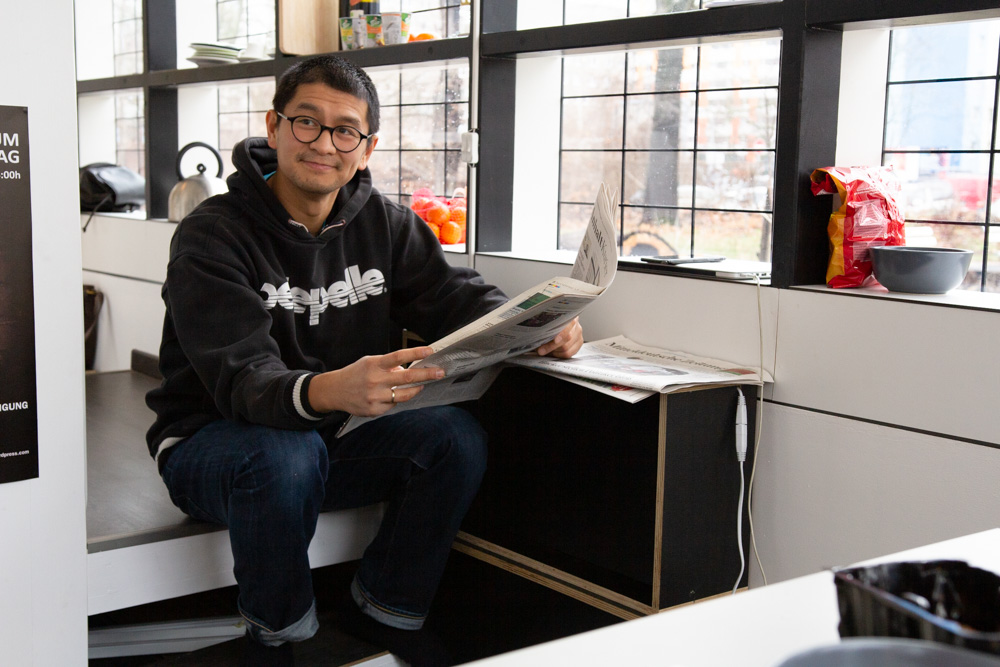
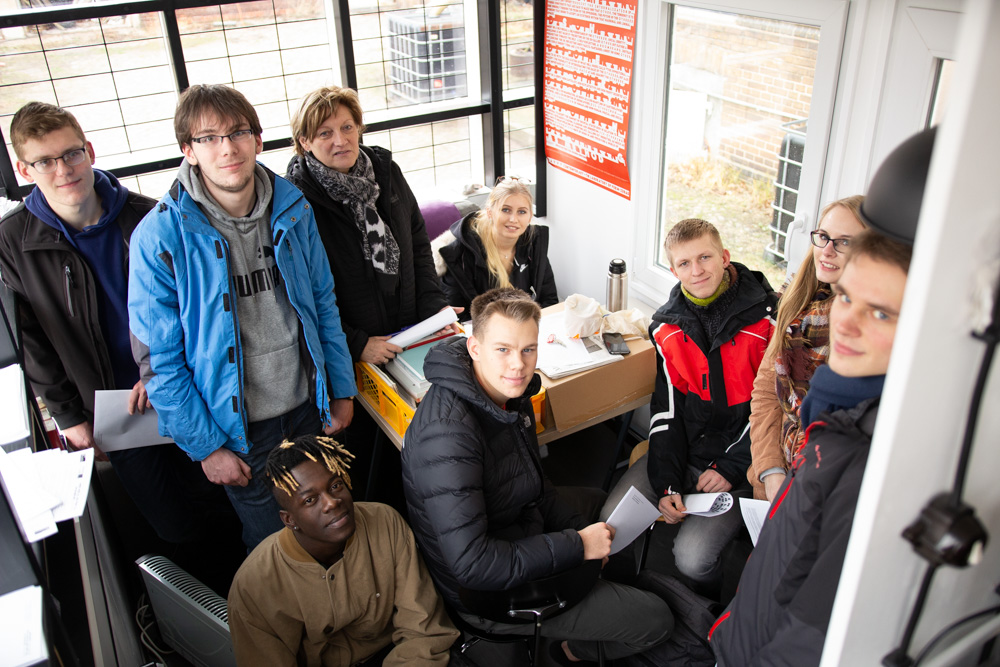
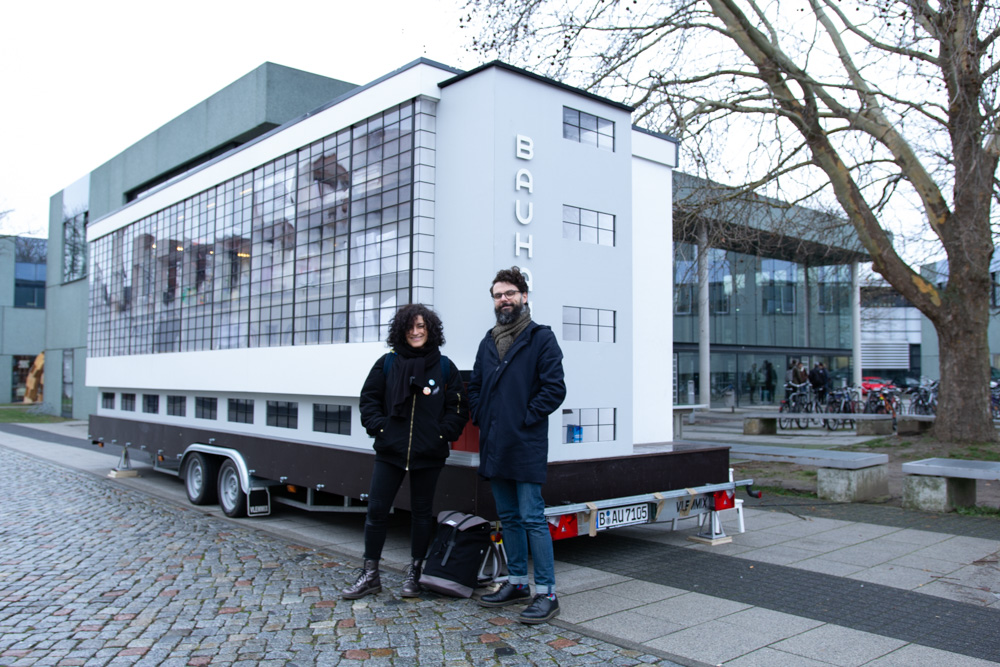
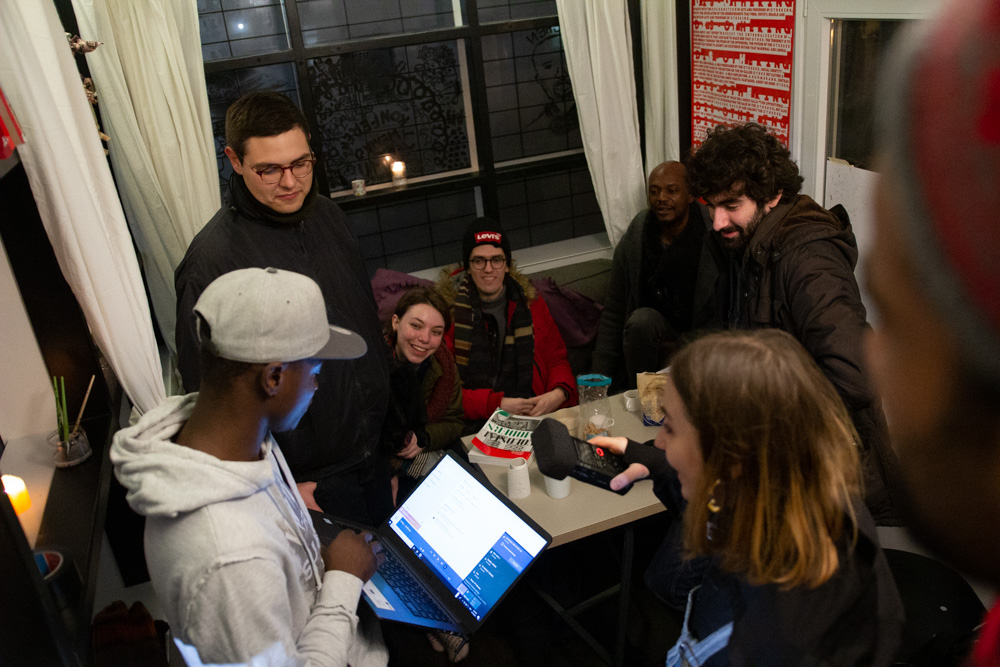
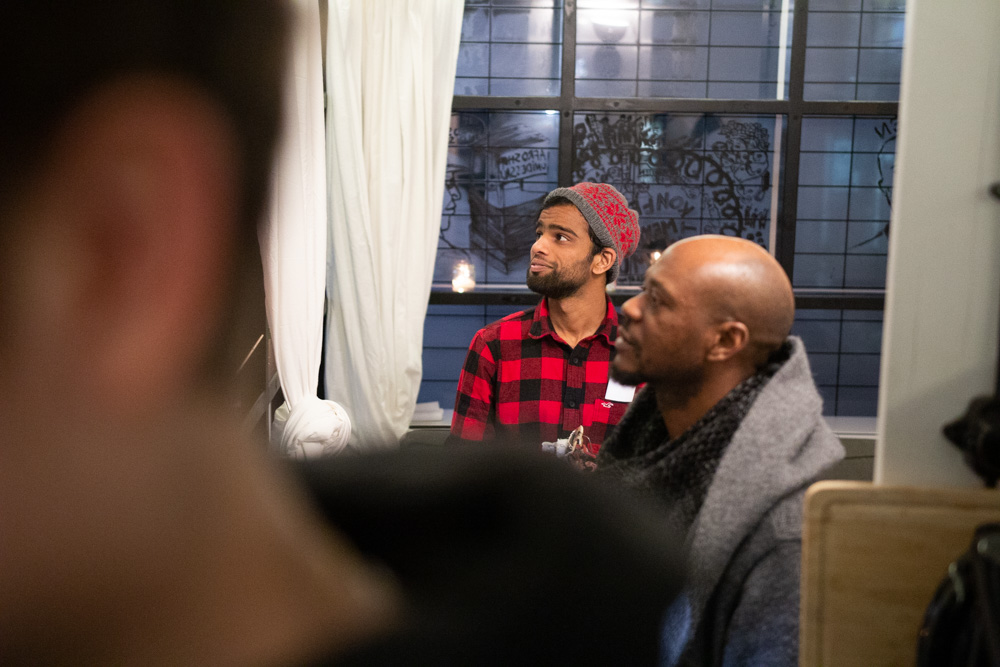
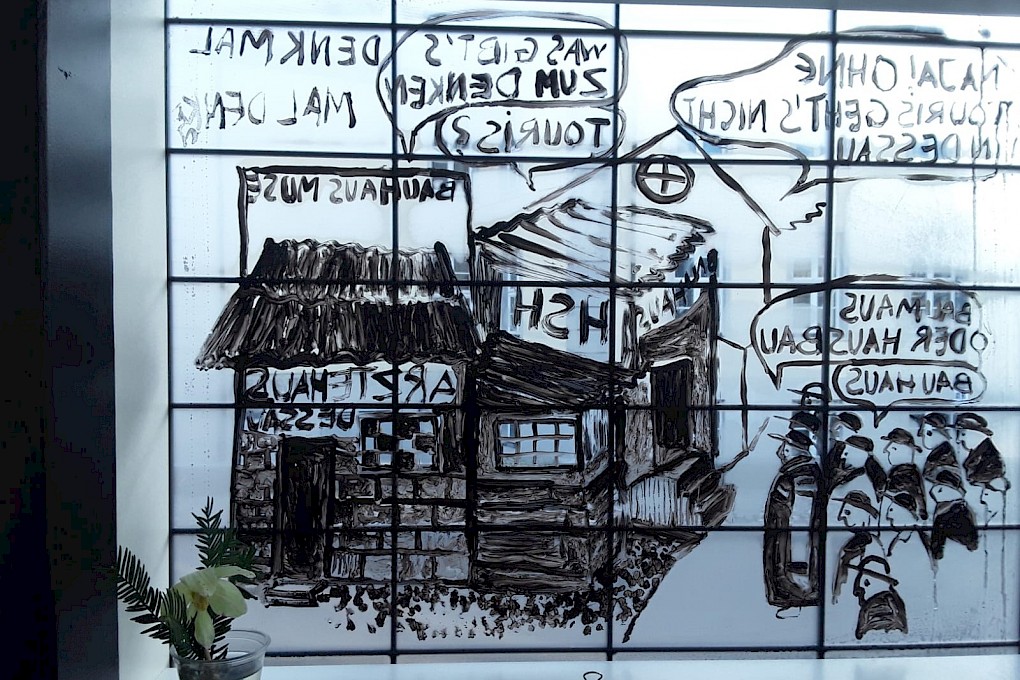
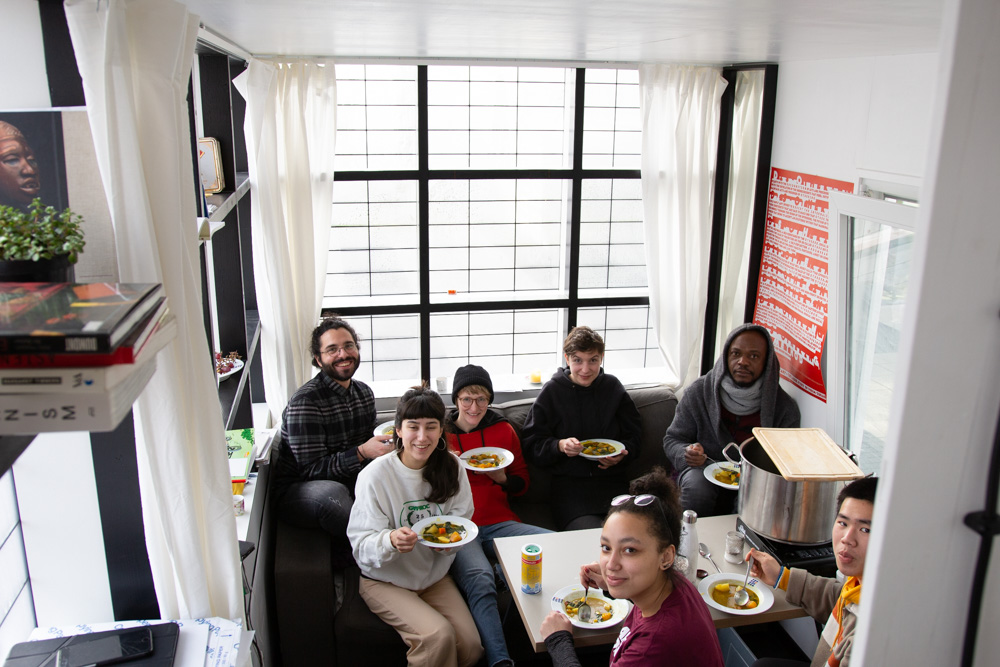
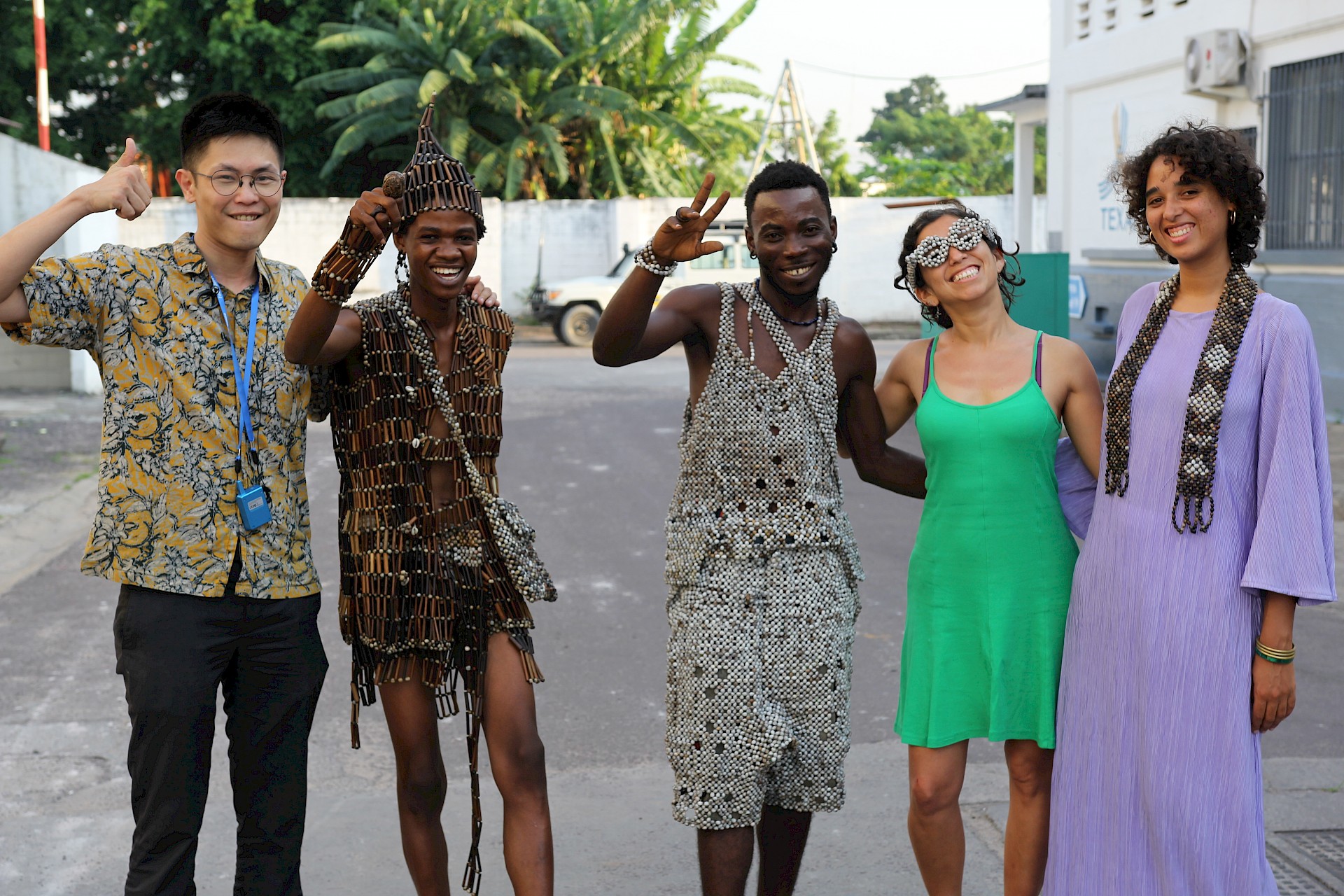
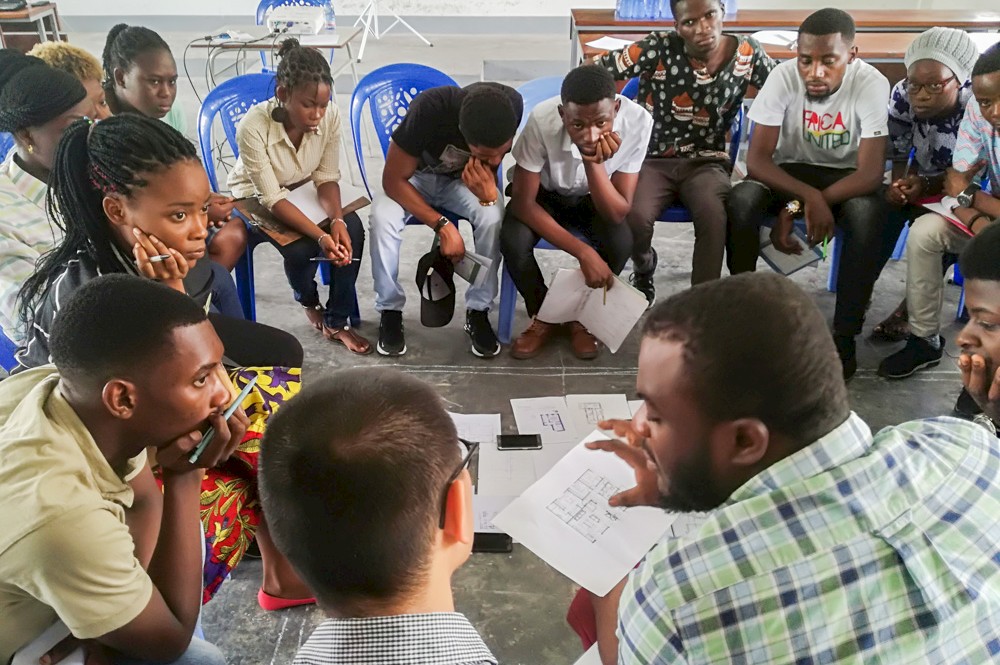
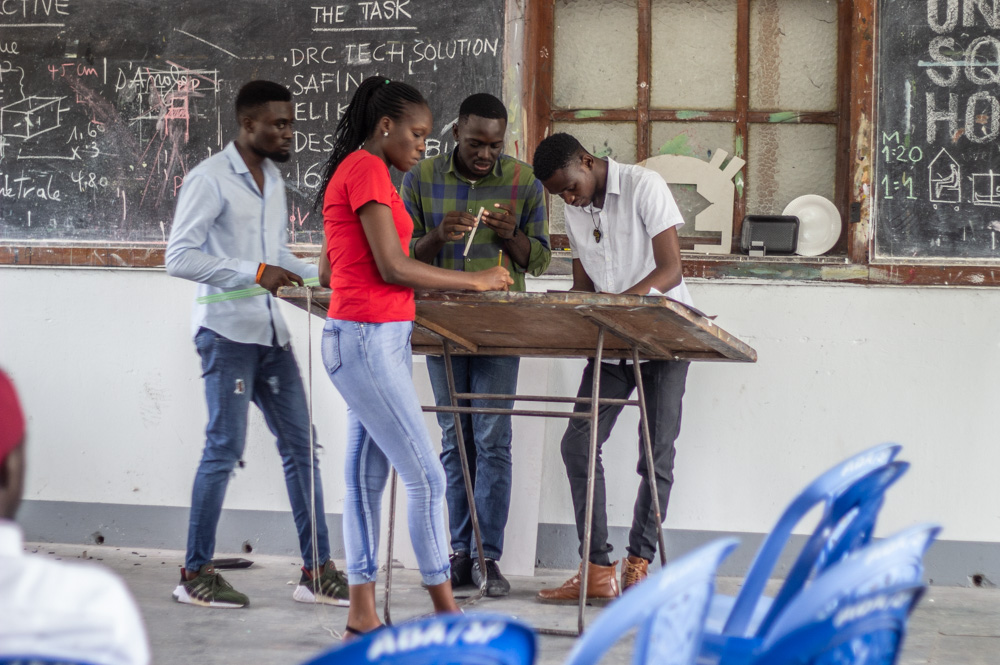
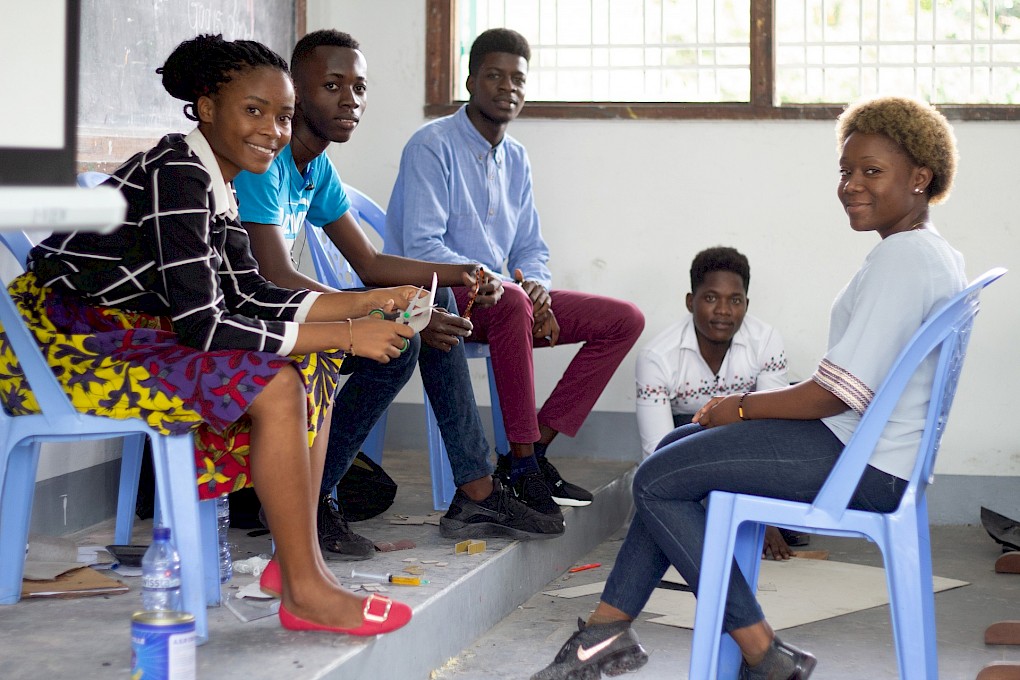
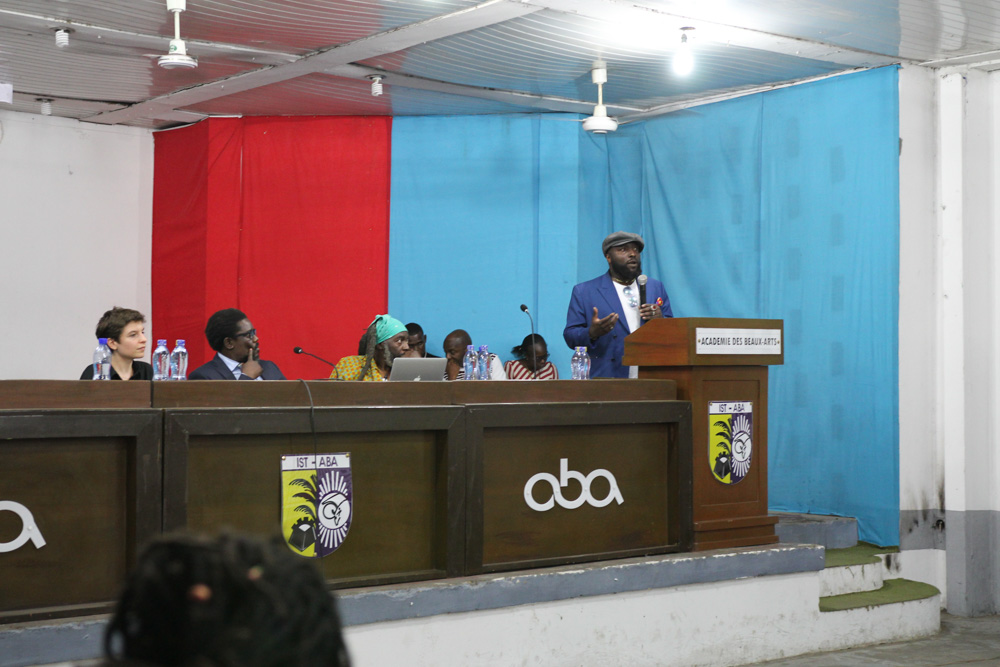
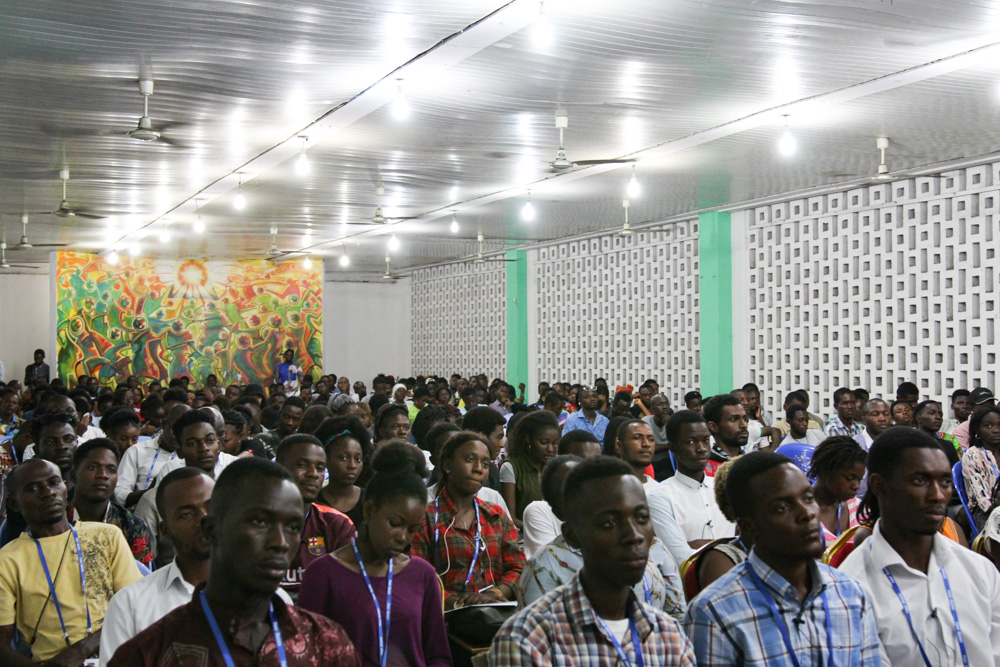
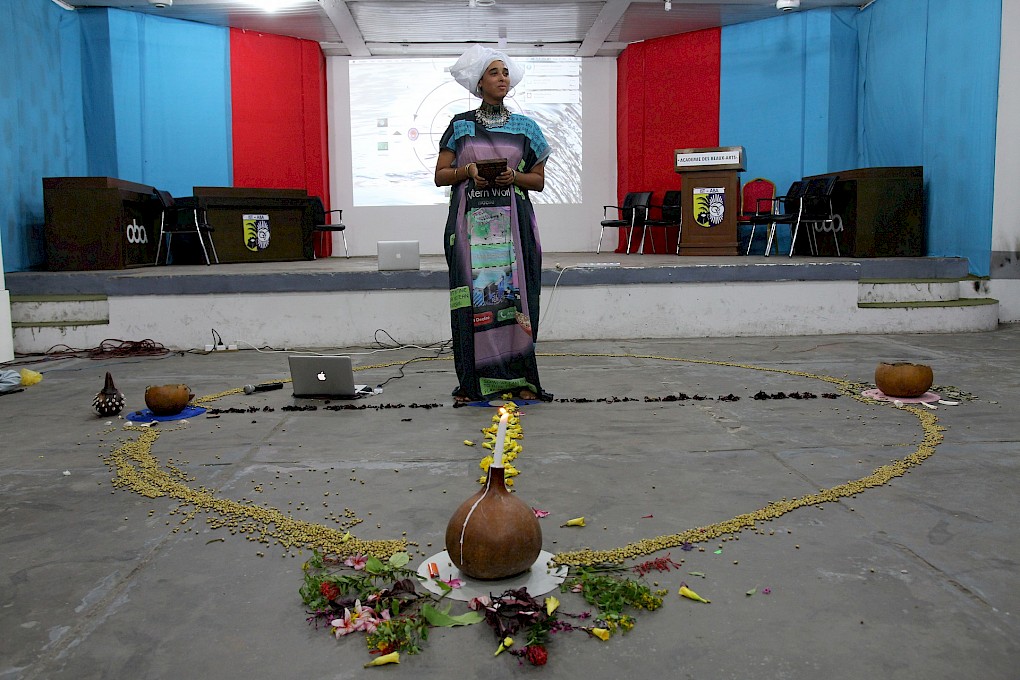
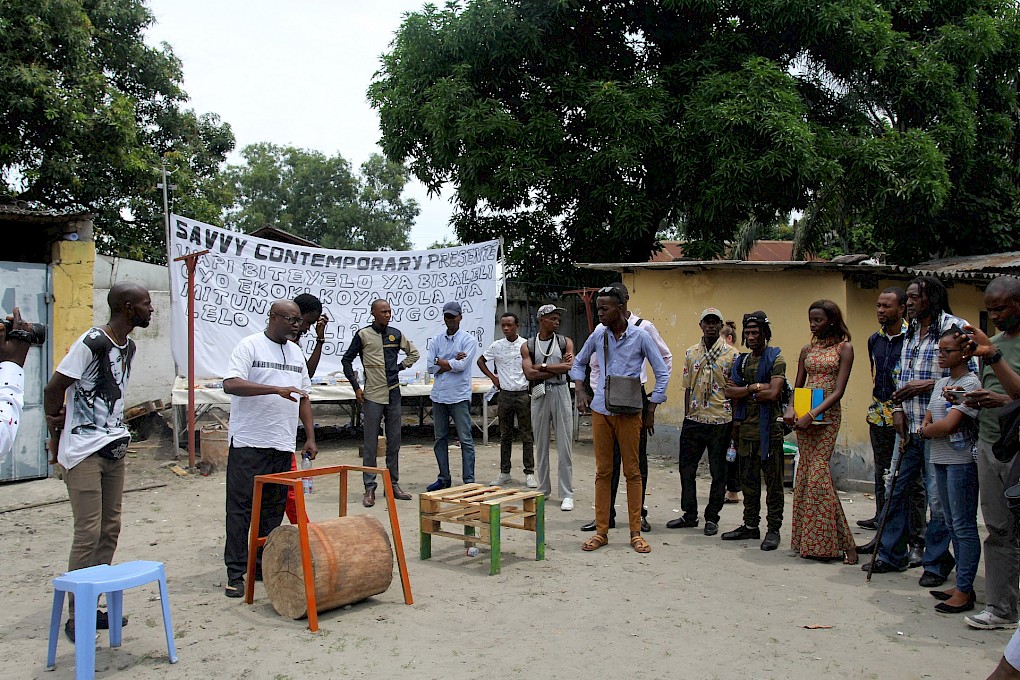
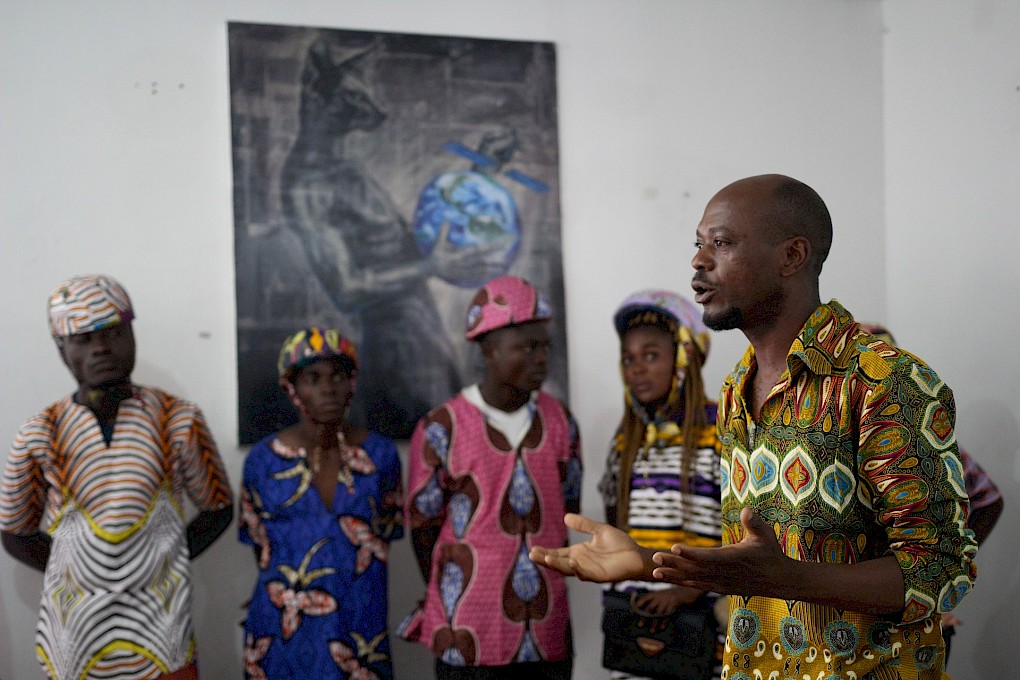
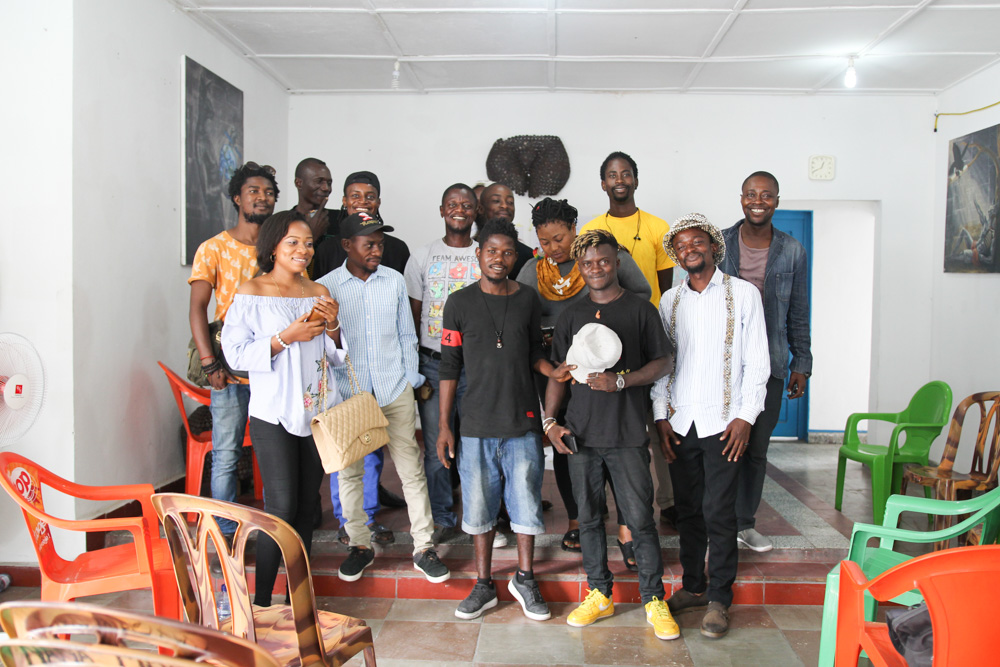
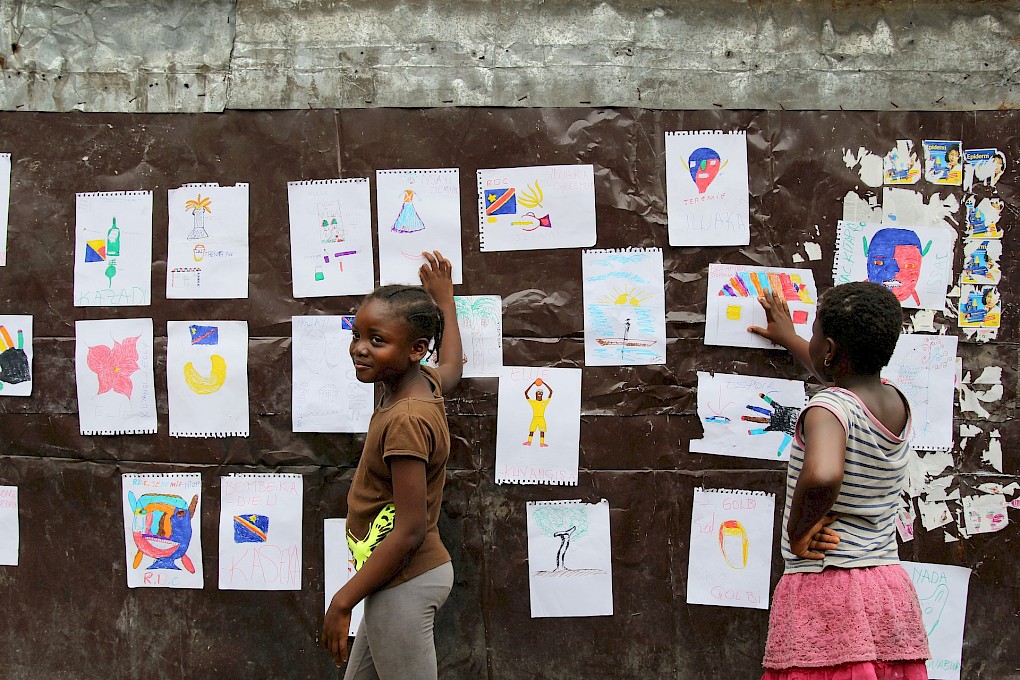
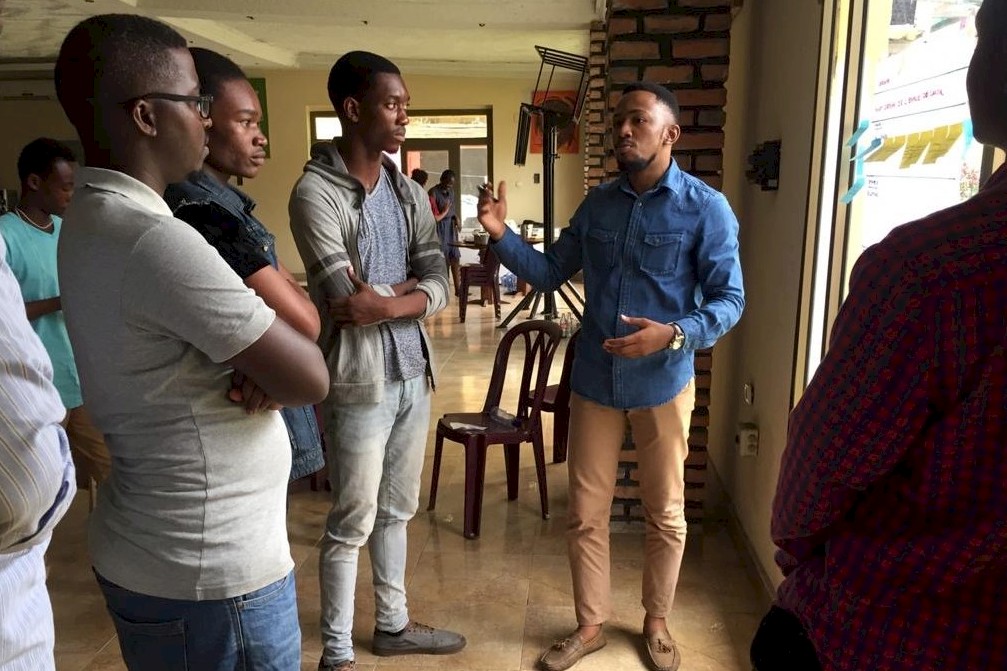
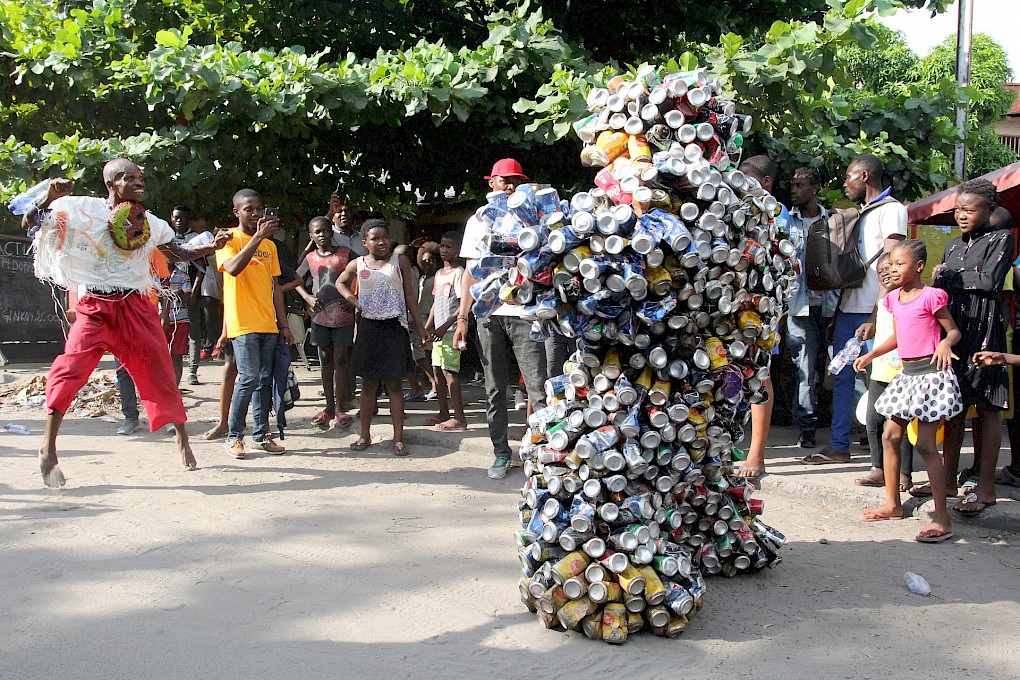
In Kinshasa, the thinking and design process will accelerate through a symposium and workshops. Various actors of former colonies will meet to raise the question how we can, in a world where all too many, still active modernist masterplans have failed, conceive our everyday environments in order to make a collective future possible – and through which philosophies. From this and through discussion rounds, a viable concept for a school of design will be debated and questioned for a furthering in other geographies, leading to the third spinning.
This third reversal takes place in Berlin where the “school” that might as well be called an “un-school,” will activate itself in Berlin at SAVVY Contemporary–The Laboratory of Form-Ideas. With fourty participants and five guests from Kinshasa, we will make the deep entanglements between modernity and coloniality explicit and question their repercussions for “world-making”, presuming nonchalantly that it may not be the “South” that needs development but the “North.” During processes of thinking and making forms of co-living and co-creating will be negotiated with the hope that new conceptions of global reality can take shape. Regular open school days and a continuous program with invited guest lecturers allow the participation of the public. Thus, words and actions aim to challenge and transform Bauhaus traditions and narratives of modernity and modernism and become palpable to the public.
The fourth and last reversal will take place in Hong Kong, in collaboration with the art space Para Site. Rather than pretending to reach any conclusions, we recognize that this reversal is another opening to the topics at stake in Spinning Triangles.
Design has power. It creates our environments, our interactions, our being in the world. For too long, practices and narratives from the “Global South” have been kept at the periphery of the design discourse, been ignored altogether, or appropriated. This needs to change. And it can only do so if we start with new forms of learning and unlearning, that may perhaps actually be very old, but have certainly been overheard for far to long.
Artistic Direction Bonaventure Soh Bejeng Ndikung
Curator & Concept Elsa Westreicher
Co-Curator Arlette-Louise Ndakoze
Curatorial Advice Elena Agudio
Curatorial Assistance António Mendes, Jorinde Splettstößer
CURATORIAL Research Raisa Galofre, Lili Somogyi
Management Lynhan Balatbat-Helbock, Lema Sikod
Management Assistance Clara Brandt, Jennifer Leung, Sadya Mizan, Fanny Souade Sow
Communications Anna Jäger
co-operators Académie des Beaux-Arts (Kinshasa), Banka (Groupe de Recherches sur le Design, Kinshasa), KinArt Studio (Kinshasa), Ndaku (Kinshasa), Timbela Batimbela Yo (Kinshasa), Hochschule Anhalt (Dessau), VorOrt Haus (Dessau), Para Site (Hong Kong), Tinyhouse University e.V.
Funding Funded by the Bauhaus heute Fund of the German Federal Cultural Foundation


